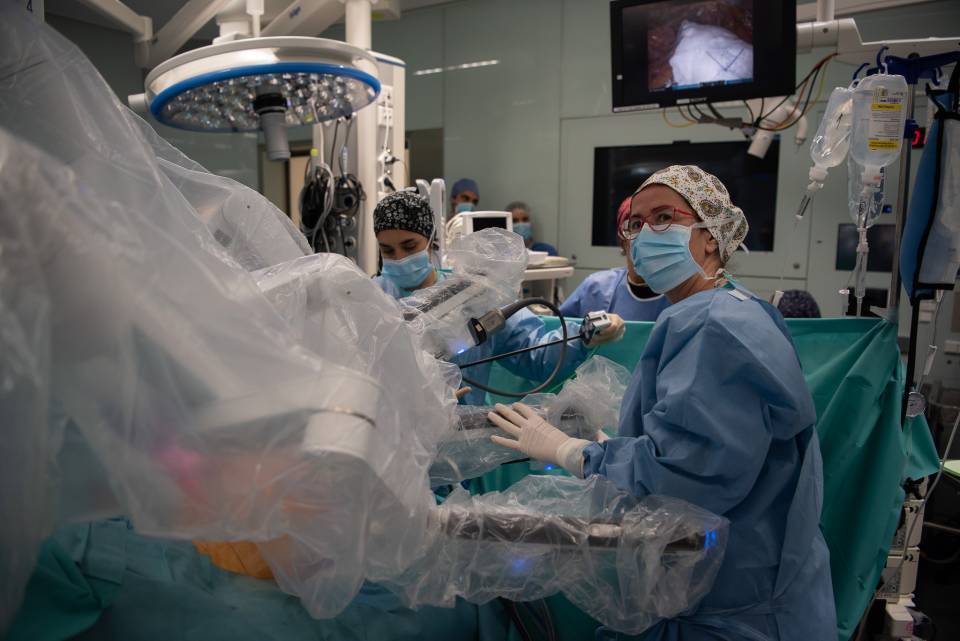Researchers from the IDIBAPS Pathogenesis of autoimmune neuronal disorders research group have succeeded in characterising the post-acute stage of anti-NMDA receptor encephalitis (NMDARe). The study, led by Mar Guasp and Josep Dalmau, compares, due to their similarity, the cognitive and psychiatric symptoms presented by patients suffering from this encephalitis with those of schizophrenia.
NMDARe is the most common anti-NMDA receptor encephalitis. Although the symptoms of the acute stage are well known, manifestations that persist or appear after hospital discharge have been little studied. One of the reasons for this lack of study is the disparity between the type and severity of the symptoms in the two stages. While the acute stage is characterised by the rapid onset of behavioural and psychiatric manifestations, along with seizures and other life-threatening neurological problems, in the post-acute stage many of these symptoms are resolved, but new, little-known symptoms appear.
With a view to addressing this knowledge gap, the researchers recruited 28 patients with NMDARe who had been discharged from hospital in the previous 4 months. Over a 12-month period, the patients were administered neurological, cognitive, psychiatric, sound, electroencephalography, and magnetic resonance imaging tests at the beginning, middle and end of the study. A similar group of patients with schizophrenia spectrum disorders, and another group of volunteers without schizophrenia, were also studied according to the same protocol.
“The post-acute stage of NMDARe has a long duration, similar in all patients, and resembles the syndrome of patients with stabilised schizophrenia spectrum disorders. In fact, in the comparison between the two groups we observed similar alterations in all psychiatric variables and half of the cognitive variables we assessed”, says Mar Guasp, first author of the article. “However, the results show that while patients with schizophrenia spectrum disorders remained stable in their deficits, those with NMDARe gradually improved, particularly over the six months following the start of the study. This suggests that, during this period of time, intensive cognitive and psychosocial interventions could accelerate patients' recovery and improve cognitive outcomes”.
At the time of the first evaluation, 86% of the patients presented psychiatric disorders, while 89% had cognitive deficits that made it difficult for them to carry out daily activities. “Although most of the neurological symptoms present at the acute stage had been resolved and only 16% of patients presented mild or moderate functional deficits, the study shows that the cognitive and psychiatric manifestations in the post-acute stage are also significant”, says Josep Dalmau, last author of the study and head of the research group. “Accordingly, these manifestations should perhaps be taken into account when establishing the end point of clinical trials or assessing their success”.
This study was carried out thanks to funding from the Instituto Carlos III, the European Union, the Government of Catalonia, and the ”la Caixa”, Edmond J. Safra, and Cellex foundations, granted to Josep Dalmau.
Reference article
Mar Guasp, Mireia Rosa-Justicia, Amaia Muñoz-Lopetegi, Eugenia Martínez-Hernández, Thais Armangué, Gisela Sugranyes, Heike Stein, Roger Borràs, Laia Prades, Helena Ariño, Jesús Planagumà, Elena De-La-Serna, Domingo Escudero, Sara Llufriu, Raquel Sánchez-Valle, Joan Santamaria, Albert Compte, Josefina Castro Fornieles, Josep Dalmau, and the Spanish anti-NMDAR Encephalitis Study Group. Clinical characterization of patients in the post-acute stage of anti-NMDA receptor encephalitis: a prospective observational cohort study and comparison with patients with schizophrenia spectrum disorders. The Lancet Neurology. XXXX




